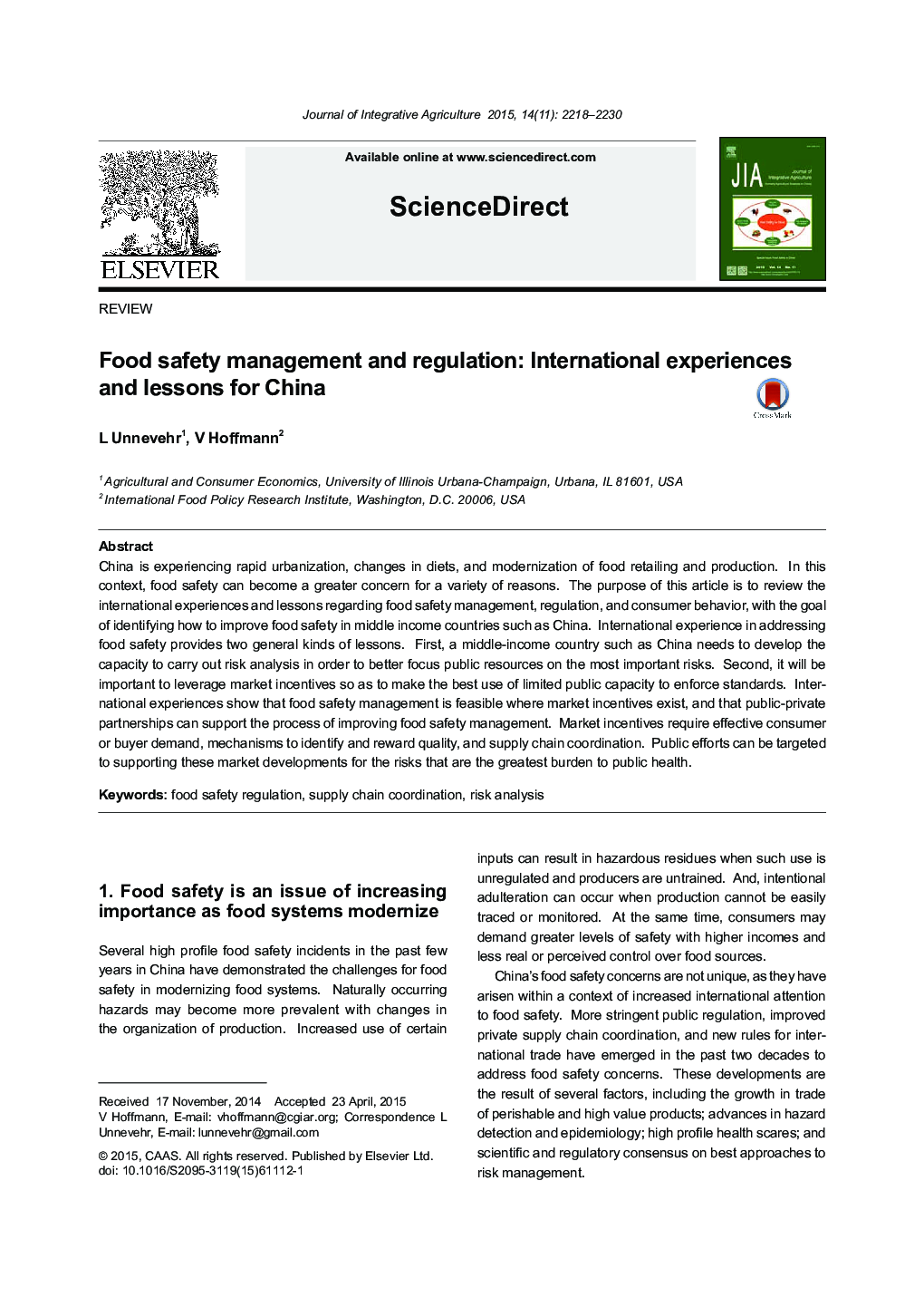| Article ID | Journal | Published Year | Pages | File Type |
|---|---|---|---|---|
| 4494113 | Journal of Integrative Agriculture | 2015 | 13 Pages |
China is experiencing rapid urbanization, changes in diets, and modernization of food retailing and production. In this context, food safety can become a greater concern for a variety of reasons. The purpose of this article is to review the international experiences and lessons regarding food safety management, regulation, and consumer behavior, with the goal of identifying how to improve food safety in middle income countries such as China. International experience in addressing food safety provides two general kinds of lessons. First, a middle-income country such as China needs to develop the capacity to carry out risk analysis in order to better focus public resources on the most important risks. Second, it will be important to leverage market incentives so as to make the best use of limited public capacity to enforce standards. International experiences show that food safety management is feasible where market incentives exist, and that public-private partnerships can support the process of improving food safety management. Market incentives require effective consumer or buyer demand, mechanisms to identify and reward quality, and supply chain coordination. Public efforts can be targeted to supporting these market developments for the risks that are the greatest burden to public health.
